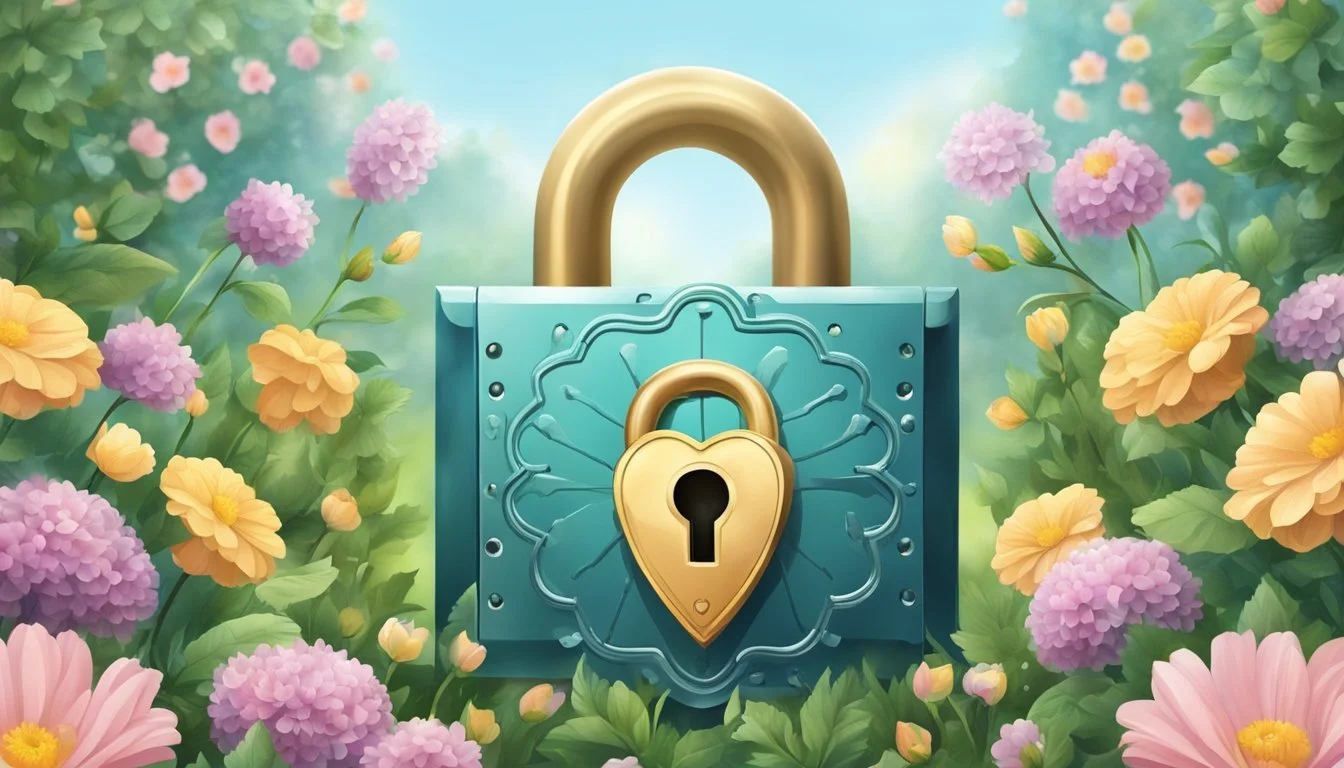14 Signs You're Ready for a Serious Commitment
Key Indicators to Consider
Deciding to enter a serious commitment is a significant step in any relationship. It requires thoughtful consideration and a clear understanding of what it means to both individuals involved. For those questioning if they are truly ready to take this step, understanding key indicators can provide clarity and confidence.
Being ready for a serious commitment involves recognizing signs that demonstrate mutual readiness for a long-term, dedicated relationship. These signs can help individuals assess their emotional preparedness and alignment with their partner's goals and values. Knowing what to look for can be essential for fostering a healthy and lasting connection.
1) You Prioritize Quality Time Together
Spending meaningful time with a partner is a key indicator of readiness for a serious commitment. When individuals make an effort to be present and engage in shared activities, it reflects their investment in the relationship.
They often plan dates, share hobbies, or even enjoy simple moments at home together. These actions show that they value their partner’s company and strive to create lasting memories.
Quality time also involves active listening and meaningful conversations. Couples who prioritize this make it a point to discuss their feelings, thoughts, and future plans. This builds a deeper emotional connection and reinforces their commitment to each other.
Another sign is making time despite busy schedules. If both partners find ways to spend time together amid their responsibilities, it shows that they place a high importance on the relationship.
Ensuring the time spent together is fulfilling and undistracted is crucial. This means putting away phones and focusing solely on each other, showing that their time together matters more than any outside distractions.
In essence, when partners consistently seek out and cherish quality time together, it signifies that they are likely ready for a deeper commitment. This shared time lays the foundation for a strong and enduring relationship.
2) You discuss long-term life goals
Talking about long-term life goals with your partner is a key sign of readiness for a serious commitment. It indicates that both parties are considering a future together.
Conversations may involve career aspirations, financial plans, or even where they envision living in the future. Discussing these goals helps to ensure compatibility and shared visions.
When both individuals openly communicate their desires and ambitions, they build a stronger foundation for their relationship. It shows they are thinking beyond the present and are actively planning a future that includes each other.
Setting common goals and understanding each other's priorities can prevent conflicts down the line. It demonstrates a level of maturity and readiness to navigate life's challenges together.
Having these discussions also means being honest about expectations and compromises. It allows both partners to align their paths, making the journey smoother and more cohesive.
Engaging in such meaningful conversations fosters trust and strengthens the bond between partners. They are more likely to make decisions that benefit both, ensuring a harmonious and supportive relationship.
For more information on other signs you're ready for a committed relationship, you can explore this helpful article.
3) You feel comfortable discussing finances
Feeling comfortable discussing finances is a crucial sign of readiness for a serious commitment. Money can be a challenging topic, but openly communicating about it shows mutual trust and transparency.
Couples who talk about their financial situations, including debts and salaries, demonstrate a willingness to share significant aspects of their lives. This conversation helps build a solid foundation for future planning.
Addressing spending habits and financial goals together indicates that both partners are on the same page. Whether it's saving for a house or planning a vacation, aligning financial objectives illustrates shared values and priorities.
Moreover, discussing finances can help avoid potential conflicts down the road. Knowing each other's financial boundaries and expectations can prevent misunderstandings and disagreements.
If financial discussions are honest and open, it suggests that both individuals are ready to tackle financial challenges together. This readiness is an essential aspect of long-term partnerships.
For more signs that you’re ready for a serious relationship, consider exploring resources like The Knot and Live Bold and Bloom.
4) You resolve conflicts maturely
One key sign of readiness for a serious commitment is the ability to handle conflicts with maturity. This involves keeping calm and collected during disagreements instead of resorting to shouting or personal attacks.
Taking time to cool down before discussing the issue can help. For example, a 15-minute break to calm and center can prevent emotions from running too high. This ensures both parties are in the right mindset to address the conflict.
Mature conflict resolution also involves active listening. Giving each other the space to express their feelings and thoughts without interruption builds mutual respect. It shows that one values the other’s perspective.
A willingness to compromise is another critical aspect. Instead of sticking rigidly to one's own viewpoints, finding a middle ground demonstrates flexibility and care for the relationship. It signals a readiness to prioritize the relationship over being right.
Communicating openly and honestly plays a significant role. This means being transparent about one's feelings and needs while staying respectful. Such communication fosters trust and understanding, crucial elements in any serious commitment.
If conflicts turn into personal attacks, it might indicate an unhealthy relationship. Being able to express oneself freely without fear of retaliation is essential for a healthy, mature relationship. This ability to handle disagreements constructively and peacefully reflects emotional maturity essential for a serious commitment.
5) You Respect Each Other's Boundaries
Respecting each other's boundaries is crucial for a successful relationship. It shows that both partners value each other's personal space and limits. If one partner clearly communicates a boundary, the other should not push back or diminish it.
Healthy relationships thrive on mutual respect. When partners take accountability for their actions, it fosters trust and admiration. If someone oversteps, promptly apologizing and taking responsibility demonstrates emotional maturity.
Setting boundaries requires open and honest communication. Using "I" statements to express feelings rather than placing blame can help avoid misunderstandings. This approach ensures clarity and promotes a compassionate dialogue about individual needs.
A partner who respects boundaries also shows consideration by learning about their partner's experiences. This understanding can help preempt potential conflicts and support the other person better in various situations.
In a relationship where both individuals respect limits, there is a foundation of respect and trust. This not only strengthens the bond but also leads to a more fulfilling and harmonious partnership.
6) You trust each other completely
Trust forms the cornerstone of any serious commitment. When both partners trust each other completely, they feel secure in sharing their thoughts and feelings. This sense of security allows for open communication, which is essential for a healthy relationship.
Complete trust also means there is no place for jealousy or suspicion. Each partner can feel confident in the other’s loyalty and intentions. This level of trust enables both individuals to be their authentic selves without fear of judgment.
Trusting each other completely often involves demonstrating reliability and consistency in actions. When one partner says they will do something, they follow through. This reliability reinforces the idea that each person can depend on the other.
In a relationship where trust is complete, partners respect each other's privacy and boundaries. There is no need for constant check-ins or invasive oversight. This respect builds further confidence in the partnership.
Trust also extends to supporting each other’s decisions and choices. Both partners feel assured that their interests and well-being are prioritized. This mutual support nurtures the relationship and helps it flourish.
For more insights into recognizing a committed relationship, you might find this BetterHelp article helpful.
7) You support each other's growth
Supporting each other's growth means encouraging personal development and celebrating achievements. This could involve pursuing individual hobbies, career advancements, or further education.
Partners who support each other's growth often engage in activities that foster mutual development. They may attend workshops together or discuss goals and aspirations openly. This creates an environment where both feel valued and motivated.
Respect plays a crucial role. When one partner makes a significant life decision, the other shows respect and provides necessary encouragement. This shows trust in their partner's judgment.
In such relationships, it's common for partners to share resources and offer constructive feedback. They may recommend helpful books or share opportunities that align with each other's goals. This mutual support strengthens the bond.
Supporting growth also means being patient and understanding during challenging times. Partners remain sturdy cheerleaders through setbacks and failures. They inspire resilience by being present and offering emotional backing without judgment.
Finally, supporting each other's growth shows a belief in the potential that each partner brings to the table. It demonstrates that both are committed to the long-term success and happiness of their relationship.
8) You communicate openly and honestly
Effective communication is a cornerstone of any serious commitment. When partners can express their thoughts and feelings without fear, it builds a foundation of trust.
Open dialogue allows individuals to address issues before they escalate. This proactive approach can strengthen the relationship by ensuring both partners feel heard and valued.
It's important to set aside time to talk, especially when discussing significant topics. This ensures that both individuals are mentally prepared and not caught off guard by the conversation.
Expressing emotions and thoughts honestly can also reduce misunderstandings. When both partners clearly understand each other's perspectives, they are better equipped to navigate challenges together.
True open communication means sharing both positive and negative feelings. Celebrating successes together and addressing concerns transparently can foster a deeper connection.
Maintaining calmness during discussions promotes better resolution outcomes. Waiting until emotions have leveled out before engaging in serious conversations can prevent rash statements and decisions.
This level of honesty in communication signals readiness for a deeper commitment and reflects a mature approach to building a lasting relationship.
For more strategies on open communication in relationships, MindBodyGreen offers practical tips.
9) You Share Core Values
Sharing core values is essential for a serious commitment. When partners align on fundamental beliefs and principles, they build a more solid foundation for their relationship. This alignment can make it easier to navigate life's challenges together.
Values such as honesty, loyalty, and respect are often central. When both partners prioritize these values, it fosters a sense of trust and security. They are more likely to support each other through difficult times.
Financial habits and goals also play a critical role. If both partners have similar attitudes towards money and financial planning, it can prevent conflicts. Discussing financial expectations can highlight whether their values align in this area.
Religious beliefs or lack thereof can significantly impact a relationship. Partners who share similar spiritual values are often more compatible. They can participate in shared practices and support each other’s beliefs.
Parenting styles and views on family life are another crucial area. If one partner values a close-knit family while the other prefers independence, it may lead to conflicts. Sharing similar views on these topics is essential for long-term harmony.
Incorporating these shared values into daily life builds stronger bonds. It creates a sense of unity and partnership that is crucial for a committed relationship. Being on the same page with core values can lead to a more fulfilling and stable relationship.
10) You are willing to make sacrifices
A key sign of readiness for a serious commitment is the willingness to make sacrifices for the benefit of the relationship. This doesn't mean losing one's identity, but rather balancing personal needs with those of the partner.
Sacrifice can involve small daily actions, like compromising on movie choices, or larger decisions, such as moving to a new city for a partner's job. Both demonstrate flexibility and a commitment to mutual happiness.
It is important to note that healthy sacrifice promotes reciprocal trust and cooperation. Each partner should feel valued and appreciated without compromising their own happiness or goals.
Recognizing this willingness to adapt and prioritize the relationship can significantly contribute to a stable and fulfilling partnership. Making sacrifices illustrates investment in the long-term success and well-being of both individuals involved.
11) You include each other in major decisions
In a serious commitment, decision-making is often shared. This means involving your partner in significant choices, whether it's about career moves, financial planning, or life goals.
When partners regularly consult each other about these major aspects, it fosters a sense of teamwork and trust. It shows that both views matter and that they are united in their approach to life.
For example, discussing a potential job change or a big purchase, like a house or car, brings both partners into the process. This ensures that both are comfortable and on the same page.
Including each other in major decisions can also reduce misunderstandings. When both partners are aware of the thought process behind major choices, it minimizes the chances of conflict and enhances mutual understanding.
An important marker of this behavior is consistent communication. Regularly updating each other about changes, plans, or significant thoughts shows a commitment to mutual respect and engagement in the relationship.
Such practices are fundamental signs of readiness for deeper commitment. Regularly involving each other in substantial decisions strengthens the bond between partners and lays a solid foundation for a long-term relationship.
12) You Have Independent Lives Yet Are a Team
A strong sign of readiness for a serious commitment is the ability to maintain independent lives while functioning seamlessly as a team. This balance allows each person to pursue personal interests and goals, fostering growth and satisfaction.
They share financial and emotional responsibilities but also value personal time and space. This dynamic creates a healthy relationship where both partners feel supported and free.
Communication is key, ensuring that both individuals understand each other’s needs and boundaries. This mutual respect strengthens the partnership and promotes trust, making it easier to navigate challenges.
Both partners should be comfortable with their independence and not rely on each other for a complete sense of self. This emotional maturity contributes to a more stable and resilient relationship.
Being able to collaborate effectively on joint decisions while respecting each other's autonomy reflects a deep level of commitment. This balance of togetherness and individuality often leads to a fulfilling and lasting partnership.
In a relationship where both partners can thrive independently yet support each other as a team, the bond is likely to be strong and enduring. This equilibrium is foundational for long-term happiness and success in a serious commitment.
13) You Envision a Future Together
One key sign of being ready for a serious commitment is the ability to envision a future together. When both partners frequently discuss future plans, they are likely setting the foundation for a lasting relationship.
Talking about life goals, big or small, indicates a willingness to invest in each other. This ranges from planning vacations to discussing potential living situations.
Seeing a future together also involves shared dreams and ambitions. Couples often find themselves talking about long-term plans, such as buying a house or starting a family, which signifies mutual commitment.
In a committed relationship, both partners should feel included in each other's futures. They discuss how they will support each other's career aspirations or personal goals, showing a deep level of partnership.
Frequent conversations about future milestones, such as saving for a dream house, can be a sign of strong commitment. This shows a readiness to face life's challenges together.
Planning for a secure future, such as saving or investing together, further indicates commitment. This can be an essential aspect of envisioning a future together, highlighting the seriousness of the relationship.
Understanding each other's timelines and expectations for commitment ensures both partners are aligned, reducing potential misunderstandings and fostering a healthy relationship.
Discussing and managing future milestones together often reflect a growing emotional connection and readiness for a serious and committed relationship. This shared vision sets the stage for a robust and enduring partnership.
14) You Navigate Tough Times Together
Facing challenges and difficult times is a key indicator of readiness for a serious commitment. Couples who can support each other through adversity demonstrate resilience and a strong bond.
When conflicts arise, they address problems directly and calmly. This ability to communicate effectively helps build trust and understanding between partners.
Whether dealing with personal crises or external stresses, they work as a team. Shared problem-solving fosters a deeper connection. This cooperative approach underscores their commitment to the relationship.
Their mutual support during hard times solidifies their partnership. It shows that they're not just enjoying the good times but are also prepared to weather the bad.
Empathy and patience are crucial during these periods. Partners who demonstrate these qualities reveal their dedication to the relationship's longevity. Demonstrating these traits consistently builds a strong foundation for the future.
Navigating tough times together strengthens emotional intimacy. It emphasizes the importance of being there for each other unconditionally. This framework of mutual support embodies what it means to be ready for a serious commitment.
Understanding Serious Commitment
A serious commitment in a relationship involves a deep emotional connection, mutual goals, and long-term planning. It contrasts sharply with casual dating, which lacks these foundational elements.
Definition of a Serious Commitment
A serious commitment is characterized by an ongoing dedication to a partner. This involves consistent efforts in nurturing the relationship and planning for the future. Both partners prioritize each other, maintain transparency, and work through challenges together. It's more than affection; it’s about sharing responsibilities and aspirations. Crucially, they envision a future together, discussing topics like career plans, financial stability, and family. Commitment also requires understanding and accepting each other's flaws, making conscious efforts to grow together.
Differences Between Casual and Serious Relationships
Casual relationships are typically defined by a lack of exclusivity and deeper emotional investment. They tend to focus on the present with limited future planning. In contrast, serious relationships involve exclusivity and a stronger emotional bond. Partners in a serious relationship communicate more openly and frequently about significant life decisions. There’s a shared vision of the future and mutual participation in each other's lives. Additionally, conflict resolution is approached with a long-term perspective, aiming for solutions that benefit the relationship as a whole, rather than just the immediate situation. This depth of commitment distinguishes serious relationships from more transient, casual connections.
Emotional Preparedness
Being emotionally prepared for a serious commitment involves recognizing emotional maturity and assessing emotional stability. These aspects are crucial to fostering a healthy, long-term relationship.
Recognizing Emotional Maturity
Emotional maturity is key in any committed relationship. It means understanding one’s own emotions and the emotions of others, while also being able to manage them effectively.
One sign of emotional maturity is the ability to communicate openly about feelings without fear of judgment. Individuals should be able to discuss their needs and desires openly and listen to their partner’s perspective.
Another indicator is the ability to handle disagreements constructively. Mature individuals don't avoid conflict but approach it as an opportunity for growth and understanding.
Additionally, emotional maturity involves recognizing when one is at fault and being willing to apologize and make amends. This trait helps build trust and respect between partners.
Assessing Emotional Stability
Emotional stability is another essential component for a serious commitment. It refers to how consistently one can handle emotional stress and bounce back from challenges.
One way to assess emotional stability is to observe how one reacts under pressure. Stable individuals remain calm and composed, even in difficult situations, and can provide support to their partner during tough times.
Consistency in mood and behavior is also a sign of emotional stability. Frequent mood swings or unpredictable reactions can create tension and unpredictability in a relationship.
Lastly, emotional stability includes having a positive self-image and self-esteem. People with stable emotions tend to be secure in their identity and are less likely to project insecurities onto their partner, fostering a healthier relationship dynamic.









